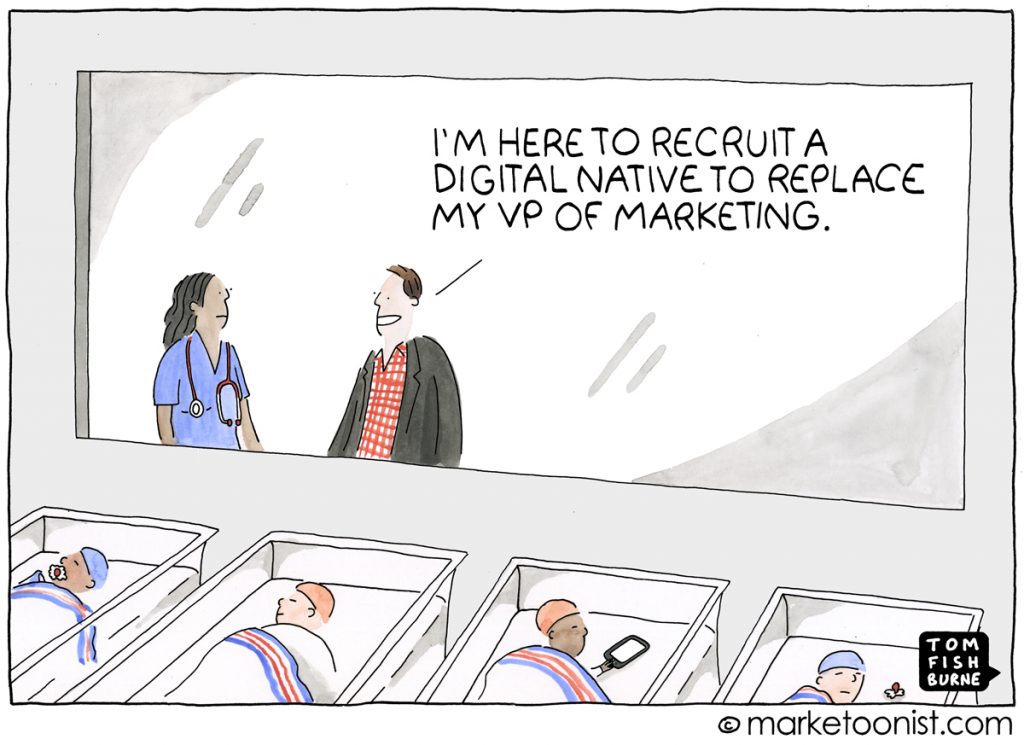Imagine you are an airline recruiting for a new CEO, and they admitted they did not really know anything about aircraft economics, aircraft leasing or airline distribution. Unlikely they would be hired, I’m sure you agree. It’s just as impossible to imagine any CEO of any retailer openly admitting they did not really understand this retailing lark, and sure, what’s all the fuss about really?
I am sure you will agree that both of the above scenarios are very unlikely to happen.
So, how come it is perfectly possible, and,indeed, deemed acceptable to have senior management in large airlines, retailers and FMCG businesses to plead ignorance when it comes to online. And, worse, still continue to hire people even in middle-management below them who do not have any form or digital background.
I can point to some many examples today of businesses today who are doing 50% + online direct to consumers and still hiring senior management with little or no digital or eCommerce background.
And for those in retail who still believe retail is all about going to the shops, think about the following set of activities just to buy a box of washing powder:
‘Leave house. Get in car. Drive to the supermarket + find a coin for the trolley + then push trolley around through screaming kids, avoid the little old ladies with nothing better to do who leave their trolley in the middle of the aisle + find & lift a box of washing powder + queue for a till + pack my bag while under pressure from an angry teenager next to me + take trolley out to car + load the car+ drive home+ unpack car. Get washing powder. Put clothes in machine. Wash. Rinse. Repeat.’*
Compare that to:
‘Open up browser on phone. Order powder. Change channel on TV.
This is the real world world today. Sure, we might say our brand is more powerful than this. But, really, washing powder, plus a whole host of other supermarket items are commodities. Commoditisation is everyway, and a ‘thing’ for all product categories.
So, for how much longer do we have to wait for digitally-savvy CEOs to be selected? Till the boards of these businesses retire and the people involved become digitally savvy?
Or are we stuck with the digital and eCommerce illiterate indefinitely?
Luckily for us all, fintech, martech, adtech, healthtech and traveltech are all exhibiting the exact same pattern: an explosion of small, agile tech-driven business targeting airlines with all sorts of products and services. These agile, nimble competitors have business models and a start-up culture are radically different to the control culture of most established businesses. Start-ups have a fail-early, fail-fast approach, whereas operationally driven businesses like financial services, retailers, airlines and so on, cannot have a failure culture. The melding of these two opposite cultures is bound to create an interesting dynamic over the next few years.
Consumer engagement with most brands is now multi-layered, multi-screen and fragmented. The inexorable rise of mobile, social media and the always-on consumer has resulted in two contrasting outcomes:
- Customers are elevating their expectations, whilst most brands face the threat of commoditisation
- Multi-screen interaction means a totally fragmented customer engagement
Mobile has grown so fast that it is used by everybody from your mother to the CEO. The fact that ‘everyone is a fingertip away’ means that there is a real opportunity to:
- Create customer experiences that engage customer
- Drive more personalised interactions
- Rapidly improve customer service scores.
All of the above has to force boards and their CEOs to engage more deeply with digital, with their IT teams and with external, fast moving vendors. CEO’s will need to learn the tech landscape, and understand how this internal and external plumbling can be use to create value for their customers and their staff. It will force them to review the connection with the real world of the always on, mobile consumer and their external environment.
Those that hide behind the spreadsheets and powerpoints of yesteryear will be taking a much higher risk: the end of their careers, and a not-so-rosy future for their brand.
*Credit to Richard Hammond, author of ‘Smart Retail’ for this wonderful example.




